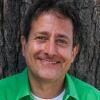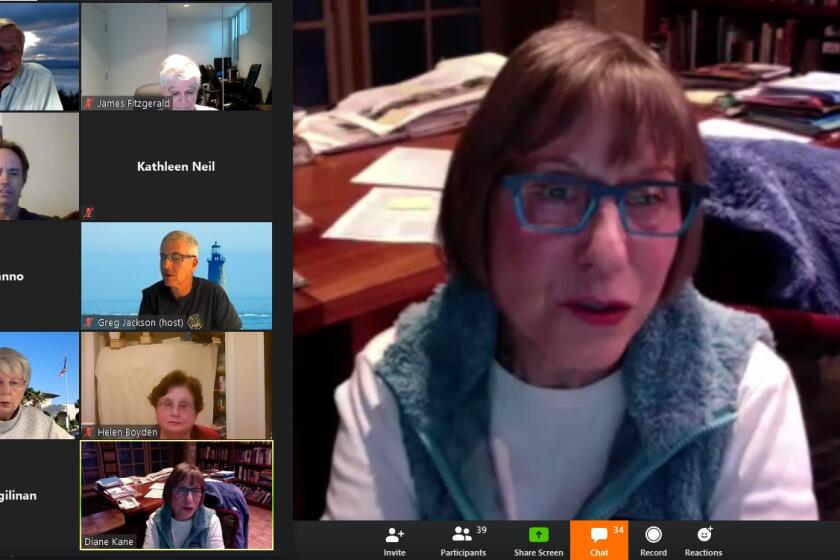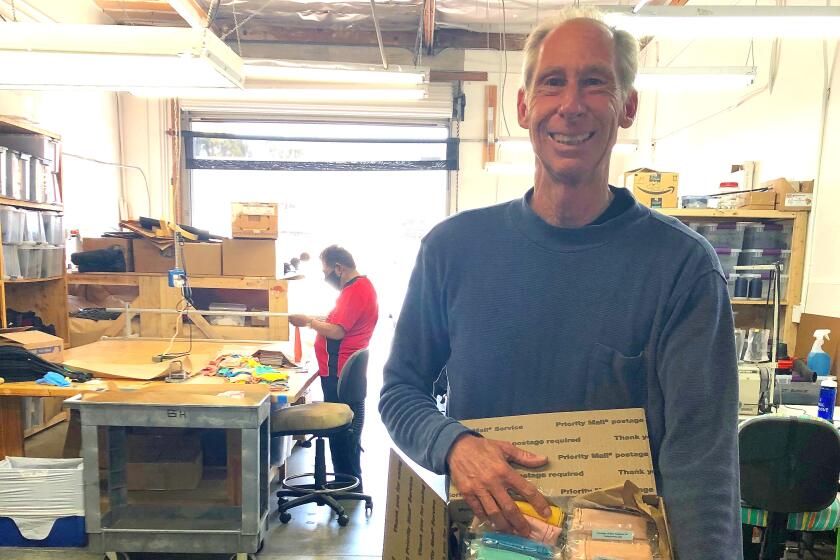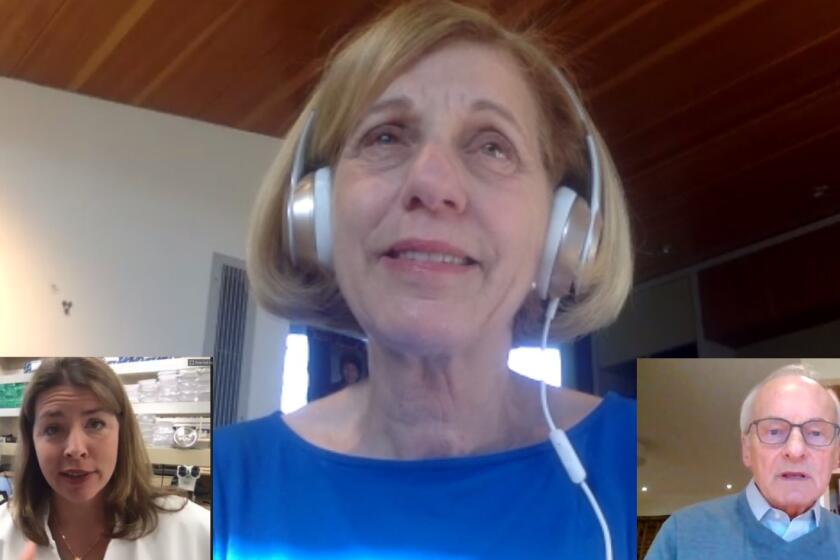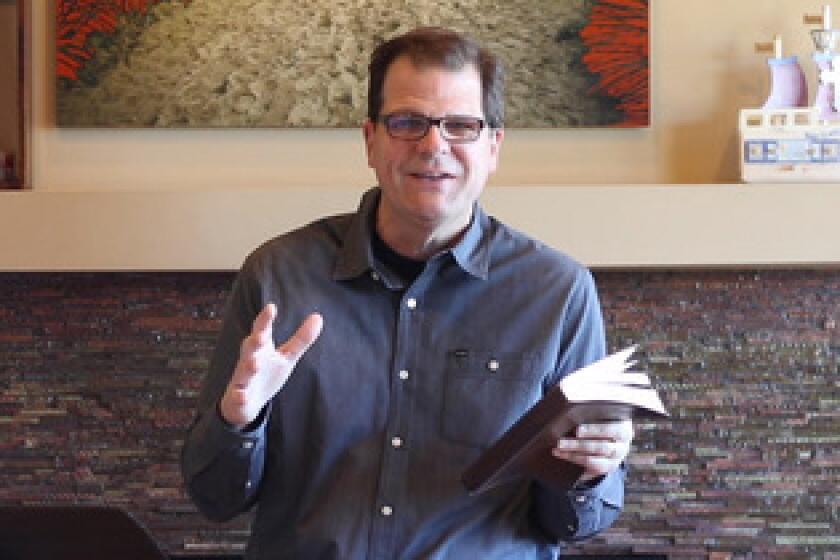PEOPLE IN YOUR NEIGHBORHOOD: Meet Daniel Atkinson
Without performing it, Daniel Atkinson has managed to become the jazz guy in San Diego.
What he does is produce, book and study it spectacularly. In his 29th year as jazz program coordinator for the Athenaeum, Atkinson presents 14-18 jazz concerts annually, in quarterly subscription series at three different venues. (The next will be Etienne Charles and Creole Sole on April 4 at The Auditorium at TSRI, 10620 John J. Hopkins Drive, at 7:30 p.m.)
Atkinson also received a 2008 Grammy nomination for one of the eight albums he has produced, Standards, featuring Alan Pasqua, Dave Carpenter and Peter Erskine.
Any doubt as to how significantly Atkinson has contributed to jazz in San Diego should be extinguished on April 4, when the City declares it Daniel Atkinson Day in a presentation before the TSRI concert, during which Atkinson is also scheduled to receive a “jazz hero” award from the Jazz Journalists Association.
The Light spoke with Atkinson in his busy office at the UC San Diego Extension, where he directs the Department of Arts, Humanities, Languages and Digital Arts. Right now, he’s in the middle of assembling the latest version of the UC San Diego Jazz Camp he founded 16 years ago. (Every June, the camp teaches 50-60 students — age 14 through 90 — how to play, and listen, to jazz in an intensive, hands-on environment.)
How does it feel to have your own day?
It’s a really nice honor, to be recognized after a lot of years of work, and I think I have a lot of perspective on the rest of the nation, and what goes on abroad, in jazz. And I think we have a lot to be proud of in this town, surprisingly enough. I think we don’t give ourselves as much credit as we deserve. We have the best jazz radio station in the country (KSDS-FM) that gets recognized with national awards year after year. And we’ve contributed a lot to jazz historically. Saxophonist Harold Land was raised here, who was recognized as a major player in the early ‘60s through the ‘80s. He performed a couple of times at the Athenaeum and I, coincidentally, produced his last album. Another one who grew up here was Arthur Blythe, who was the type rising sax star in the ‘80s.
You grew up in Clairemont. Do you have any childhood memories of La Jolla?
My father’s company was headquartered in La Jolla Shores and I grew up in a Lutheran church on La Jolla Boulevard. So I have a longstanding connection with the community. Later on, I lived on Prospect Street for 15 or 16 years. It’s always been a part of my life, it’s always been on my map. I don’t feel out of place here in any way.
But you stayed in the Bay Area for a while after college.In 1988, I’d been working in San Francisco for an arts organization, and it was not a good year financially. Black Tuesday happened that fall. Eventually, the call of home was persuasive. And at that point, the mother of my closest friend growing up was on the board of the Athenaeum, which was on the verge of a huge expansion that required fundraising, programmatic innovation and expansion, and just kind of a re-conceiving of the organization. And I got in there and got hooked into a lot of different things, one of which was starting the jazz series in 1989. There was a bit of a resistance on the part of the board to jazz at that point. It still had a little bit of a reputation for being slightly disreputable. But the programs were almost instantaneously successful.
Why do you think La Jolla is so good at appreciating jazz?You’ve got a lot of very educated and accomplished people here. A lot of the members of the audience for the jazz series are physicians and lawyers and scientists who all played music as youngsters and who have a really profound connection to that music. And I think it helps that there is a population in La Jolla that is kind of worldly. They’ve been around.
You came at jazz from a different perspective.
I was a classical music snob as a kid. That’s all I listened to. Although a portion of what I was involved with as a youngster was early music, because I grew up around a group of people who placed Renaissance music for The Old Globe theater, and there is ornamentation. You don’t just play what’s on the page; you have a whole set of tricks and things you play around the note with. And there also are cadenza sections where the performer is supposed to improvise, within a certain kind of parameter. So, somehow, I think my early music experience is relevant in a weird way.But it wasn’t until I spent some time in Berlin, as a student, that I discovered jazz. I was taking classical guitar lessons from a great performer at their music conservatory, and we would sit around and talk after the lessons. And one day, he asked me what I thought about John Coltrane. I told him I didn’t listen to that stuff. And he pretty much told me that I was an idiot; that, as an American, I needed to know, understand and love what is our country’s greatest contribution to world culture.Then I remember one day being at a friend’s house up in Berkeley, and hearing a Coltrane album called “Lush Life” and hearing the Coltrane solos. The clouds opened. I thought, ‘Wow, this is absolutely of the highest, highest order in terms of its musicality.’While I was at Stanford, I had a group of friends who were jazz guys. They were in fields like geosciences, chemistry and mathematics, and we would all go off to the clubs in the Bay Area on weekends, and I got to hear a lot of great musicians that way. The bug was planted.
Is Coltrane still your favorite musician of all time? Yes. Slam-dunk, he’s the guy. I would have to say Coltrane is a world historical figure in music, and had such profundity and mastery in so many different ways.
Do you still play guitar?
Yes, mostly classical. But I’ve been working on bossa-nova lately, which is sort of a doorway into improvisation.
You don’t think you’re good enough to play the music you love on the instrument you play best?
No question I’m not good enough. I would not even dream to be able to play, not just yet. But I am learning to sing a big in Brazilian Portuguese, so that’s fun.
What can people expect musically on April 4, besides your not playing jazz guitar?
A really dynamic young trumpeter named Etienne Charles. He is originally from Trinidad but has been in the U.S. a long time. He’s exploring the Caribbean roots of jazz. Jazz evolved in the U.S. predominantly in New Orleans, the African population there having brought their own music with them, in spite of the horrible circumstances of slavery, and managed to maintain their music traditions and transform them in the U.S. But similarly, in other areas like Cuba, Venezuela, Puerto Rico and Panama, there were also strong improvised music traditions that are highly related to jazz. So Etienne is going to play a program that explores these places and the different rhythms and traditions that are really close cousins to American jazz.
Editor’s Note: La Jolla Light’s “People in Your Neighborhood” series shines a spotlight on notable locals we all wish we knew more about! Light staff is out on the town talking to familiar, friendly faces to bring you their stories. If you know someone you’d like us to profile, send the lead via e-mail to editor@lajollalight.com or call us at (858) 875-5950.
Get the La Jolla Light weekly in your inbox
News, features and sports about La Jolla, every Thursday for free
You may occasionally receive promotional content from the La Jolla Light.
